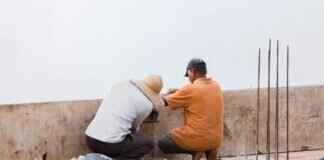Santa Clara County Dist. Atty. Jeff Rosen made waves when he announced felony charges against 12 pro-Palestinian protesters, most of whom were current or former Stanford students or graduates. These individuals allegedly broke into and vandalized a Stanford University administration building back in June, triggering a series of events that have captivated the public eye.
The charges these individuals face are significant, marking a notable prosecution in California following a wave of demonstrations and encampments that swept across college campuses in protest of Israel’s actions in Gaza. The gravity of the situation was not lost on Rosen, who emphasized the distinction between free speech and criminal behavior, stating, “Dissent is American. Vandalism is criminal.”
The incident took place in the early hours of the morning, with the defendants, ranging in age from 19 to 32, causing extensive damage to Building 10 on the Stanford campus. Windows were shattered, furniture was destroyed, fake blood was splashed, and security cameras were disabled during the occupation. The aftermath resulted in an estimated $250,000 in damages, prompting the university to spend approximately $1 million on restoration efforts.
Protesters Facing Charges
Among those facing felony charges are individuals like Maya Burke, Zoe Edelman, and Eliana Fuchs. These protesters are accused of felony vandalism and felony conspiracy to trespass, offenses that carry potential jail time and restitution orders if convicted. The severity of these charges underscores the impact of their actions and the legal implications they now face.
The break-in at Stanford’s administration building was a bold statement by the protesters, who demanded divestment from Israel and vowed not to leave until their demands were met. However, their stand was short-lived as law enforcement swiftly responded to the scene, breaking through barricades and dispersing the group. The clash between protesters and authorities highlighted the tension and passion surrounding the issue at hand.
One individual caught in the crossfire was Dilan Gohill, a student journalist who found himself embedded with the protesters during the occupation. Gohill’s arrest drew attention to the complexities of reporting on such events and the challenges faced by journalists in the midst of civil unrest. His story sheds light on the fine line between observing and participating in protests, a line that can blur in the heat of the moment.
Nationwide Impact
The repercussions of the Stanford incident reverberated across the nation, reflecting a broader trend of pro-Palestinian activism on college campuses. The wave of demonstrations that swept through various institutions last year resulted in over 3,200 arrests, with California being a focal point due to its significant protest activity. UCLA, USC, and other campuses saw large-scale demonstrations demanding divestment from Israel, highlighting the growing momentum of the movement.
While the Stanford prosecutions stand out for their severity, they are part of a larger landscape of legal actions taken against pro-Palestinian protesters. Many cases remain unresolved, with students facing disciplinary consequences on campus even in the absence of criminal charges. The legal and social implications of these protests underscore the complex interplay between activism, free speech, and law enforcement in the modern era.
As the dust settles on the Stanford incident, questions linger about the future of such demonstrations and the balance between expressing dissent and upholding the law. The clash of ideals and ideologies on college campuses mirrors broader societal debates about justice, equity, and human rights. The legacy of these events will endure, shaping the discourse around activism, protest, and the pursuit of social change.
In the wake of the Stanford protests, the nation grapples with the aftermath, pondering the implications for free speech, civil disobedience, and the boundaries of activism. The voices of the protesters, the actions of law enforcement, and the responses of university officials all play a part in a larger narrative of social struggle and political engagement. As we reflect on these events, we are reminded of the power of dissent, the importance of dialogue, and the enduring quest for justice and equality in a complex world.













